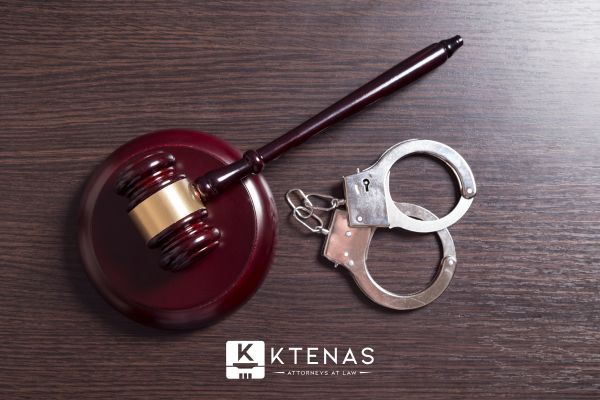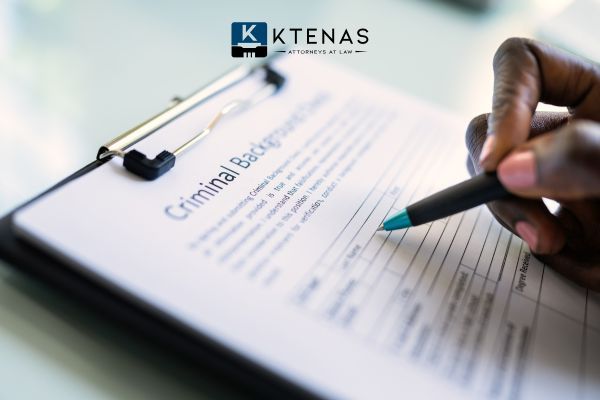Can You Legally Record Police Officers?
11/09/2025
Facing a drug charge in Chicago can be overwhelming, but not all cases result in jail time. In some situations, courts offer alternative sentencing options focusing on rehabilitation rather than punishment. These programs help individuals avoid incarceration while addressing the underlying issues that contribute to drug-related offenses. Understanding the available legal strategies can help defendants make informed decisions about their future.
When dealing with criminal charges for illegal drugs, it is important to know how Cook County, DuPage County, and Lake County courts handle alternative sentencing. Each jurisdiction may have different policies from county to county, and seeking guidance from a strong defense attorney can be crucial.
At Ktenas Law, we understand the complexities of Illinois’ legal system and are committed to exploring all possible avenues to achieve the best outcome for our clients. If you or a loved one is facing drug charges, it’s crucial to consult with an experienced attorney who can guide you through these alternative sentencing options. Call our Chicago drug defense lawyers today at (312) 756-8652 to discuss your case and learn how we can help protect your future.
Alternative sentencing provides eligible individuals with an opportunity to avoid traditional jail time by participating in structured programs. These options prioritize rehabilitation and aim to reduce repeat offenses rather than relying solely on punitive measures.
The main goals of alternative sentencing include:
Some alternative sentencing programs also focus on preventing individuals from facing harsher consequences, such as lengthy prison sentences for drug offenses. Courts may consider factors like the quantity of drugs involved, the presence of mental illness, and whether the defendant was involved in a felony offense.
Not everyone facing drug charges qualifies for alternative sentencing. Courts consider several factors before granting these options, including:

In addition, courts may evaluate whether an unlawful search or lack of a valid warrant affected the arrest. A strong defense attorney can challenge the legality of the search and the admissibility of surveillance footage or other evidence.
Several alternative sentencing programs are available in Chicago. The right option depends on the specific circumstances of the case and the individual’s criminal background.
Drug courts offer structured programs that combine judicial supervision with treatment services. These programs typically include:
Successful completion of the program can lead to reduced criminal charges or the dismissal of the case. In counties like Lake County and Cook County, drug court programs are often available to first-time offenders who demonstrate a commitment to rehabilitation. These programs are particularly beneficial for individuals facing severe criminal penalties but willing to seek treatment.
A probation period allows individuals to serve their sentences in the community under strict conditions. Requirements may include:
Violating probation terms can lead to lengthy prison sentences or harsher penalties. Criminal defense attorneys can help negotiate favorable TASC probation terms and build an aggressive defense strategy to avoid unnecessary penalties.
Deferred prosecution allows eligible defendants to complete a court-ordered program in exchange for having drug charges dismissed. These programs often require:
If all conditions are met, the defendant avoids a drug conviction and may be eligible for record sealing. This is an essential option for those looking to minimize the long-term legal consequences of a drug charge.
Drug diversion programs focus on treatment and rehabilitation rather than punishment. Participants must comply with program requirements, such as attending counseling or drug education courses. Successful completion may result in charges being dropped or significantly reduced, especially for non-violent drug crime offenses. Courts consider factors such as a history of mental illness or whether the arrest involved an illegal search.
For some offenders, community service is an alternative to incarceration. Courts may require a specific number of hours to be completed at approved organizations. Community service allows individuals to contribute positively to society while avoiding jail time. In DuPage County, judges often recommend hours of community service in place of minor drug-related sentences.
Judges may order defendants to enroll in rehabilitation or drug treatment programs. These programs help individuals address substance abuse issues through counseling, medical treatment, and therapy. Participation in such programs can demonstrate a commitment to recovery and reduce the risk of reoffending.
Alternative sentencing options, such as pretrial diversion programs, probation, or deferred adjudication, can offer individuals a chance to avoid potential penalties like jail time. However, the impact on a person’s criminal record depends on the type of program, the offense, and whether all conditions are met.

In many cases, successful completion of an alternative sentencing program may allow for expungement or record sealing, meaning the charge will not appear on most background checks. This can be beneficial when seeking employment, housing, or professional licenses. However, some offenses may not qualify for expungement, even after alternative sentencing.
If a defendant fails to complete the program requirements, such as community service, counseling, or restitution, they may face the original criminal charges and sentencing, which could result in a criminal conviction on their record. Additionally, certain alternative sentencing options, like probation, may still leave a record of the charge, even if no conviction occurs. Understanding the long-term implications of alternative sentencing is crucial when deciding whether to accept such an option.
Alternative sentencing is more common for misdemeanor drug offenses, but in some cases, felony drug charges may also qualify. Courts consider factors such as:
While eligibility is more limited for felony charges, common defense strategies may help secure alternative sentencing options and reduce harsher consequences.
Failing to meet alternative program requirements can have serious consequences, including:
If facing challenges with completing a program, it is important to seek legal advice as soon as possible to explore potential defenses. A Chicago defense attorney may help prove reasonable doubt regarding the failure to meet requirements or argue for alternative legal strategies.
Navigating drug charges can be overwhelming, but understanding your legal options may provide a path forward. Programs focused on rehabilitation instead of incarceration can help individuals avoid the long-term consequences of a conviction while addressing underlying issues like addiction or mental health challenges. Seeking legal representation is key to determining eligibility for these alternatives and ensuring the best possible outcome.
If you are facing drug charges in Illinois, having a knowledgeable attorney on your side can make all the difference. A lawyer can evaluate your case, advocate for alternative sentencing, and work to protect your future. Contact us today to discuss your options and take the first step toward a better resolution.

